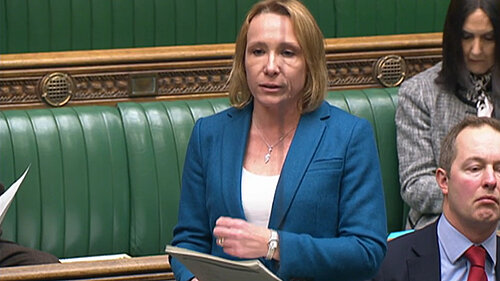Helen Morgan's warning over pub packaging tax

Helen Morgan MP has warned that new packaging rules risk “delivering a crippling blow” to hospitality businesses like pubs, brewers and wine merchants.
Speaking in a Parliamentary debate, The North Shropshire MP said that companies already struggling under pressure from Labour government policies now face huge additional costs due to the Extended Producer Responsibility scheme.
EPR was introduced under the last Conservative government and means that businesses will be financially obliged to cover the costs of the disposal of their packaging waste. This means that drinks producers already paying high business rate costs will also have to pay for recycling and waste disposal – costs that will be passed on to pubs who will in effect pay twice as they already pay to dispose of waste.
Moreover the exact cost of the levy is still not known meaning that businesses are unable to plan their upcoming budgets.
Helen, a former accountant, explained the serious impact this will have on businesses like pubs with small profit margins and warned that the price of a pint would likely increase as costs are passed onto consumers while job losses.
Helen called the bureaucracy involved in the scheme ‘enormous’ – and urged Government Minister Mary Creagh to reconsider the implementation of the levy to protect high streets, local producers and consumers.
Since her election, Helen has consistently campaigned for the protection of local high streets and businesses – just last month launching her ‘Buy Shropshire, Back Britain’ campaign in the wake of Donald Trump’s liberation day tariffs.
Helen Morgan, Liberal Democrat MP for North Shropshire, said, “This policy risks delivering a crippling blow to pubs, breweries, and wine merchants who are already being whacked by national insurance rises and bloated business rates.
“The government must listen to common sense, rethink the Extended Producer Responsibility scheme and provide local businesses with the certainty they need.
“Otherwise hospitality firms hoping to grow could instead be forced to increase prices and lay off staff.”
